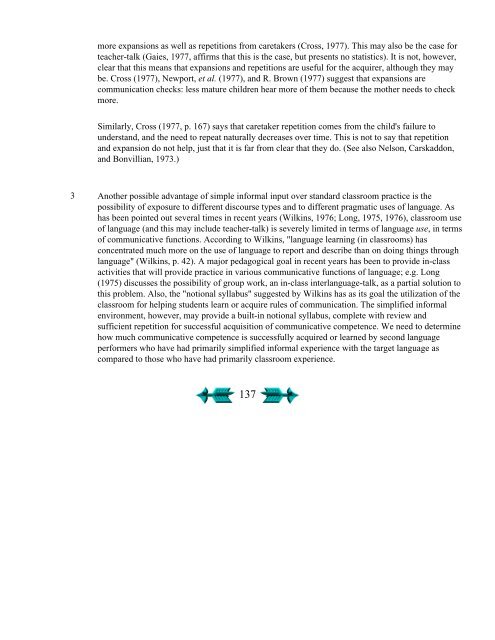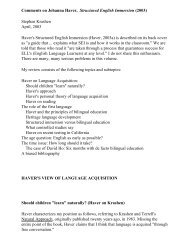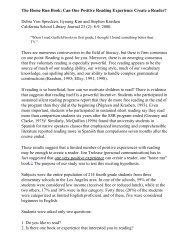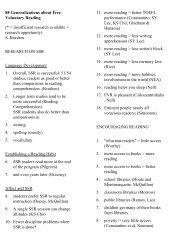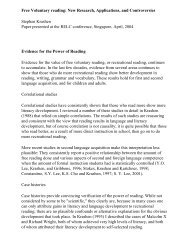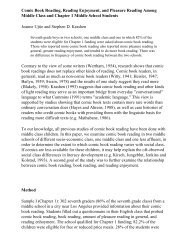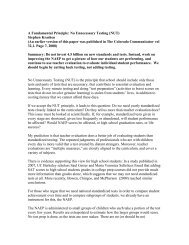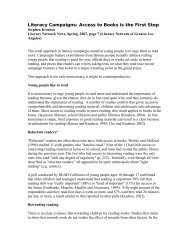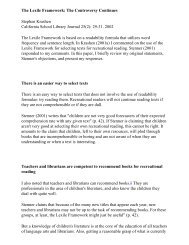Second Language Acquisition and Second ... - Stephen Krashen
Second Language Acquisition and Second ... - Stephen Krashen
Second Language Acquisition and Second ... - Stephen Krashen
Create successful ePaper yourself
Turn your PDF publications into a flip-book with our unique Google optimized e-Paper software.
more expansions as well as repetitions from caretakers (Cross, 1977). This may also be the case for<br />
teacher-talk (Gaies, 1977, affirms that this is the case, but presents no statistics). It is not, however,<br />
clear that this means that expansions <strong>and</strong> repetitions are useful for the acquirer, although they may<br />
be. Cross (1977), Newport, et al. (1977), <strong>and</strong> R. Brown (1977) suggest that expansions are<br />
communication checks: less mature children hear more of them because the mother needs to check<br />
more.<br />
Similarly, Cross (1977, p. 167) says that caretaker repetition comes from the child's failure to<br />
underst<strong>and</strong>, <strong>and</strong> the need to repeat naturally decreases over time. This is not to say that repetition<br />
<strong>and</strong> expansion do not help, just that it is far from clear that they do. (See also Nelson, Carskaddon,<br />
<strong>and</strong> Bonvillian, 1973.)<br />
3 Another possible advantage of simple informal input over st<strong>and</strong>ard classroom practice is the<br />
possibility of exposure to different discourse types <strong>and</strong> to different pragmatic uses of language. As<br />
has been pointed out several times in recent years (Wilkins, 1976; Long, 1975, 1976), classroom use<br />
of language (<strong>and</strong> this may include teacher-talk) is severely limited in terms of language use, in terms<br />
of communicative functions. According to Wilkins, "language learning (in classrooms) has<br />
concentrated much more on the use of language to report <strong>and</strong> describe than on doing things through<br />
language" (Wilkins, p. 42). A major pedagogical goal in recent years has been to provide in-class<br />
activities that will provide practice in various communicative functions of language; e.g. Long<br />
(1975) discusses the possibility of group work, an in-class interlanguage-talk, as a partial solution to<br />
this problem. Also, the "notional syllabus" suggested by Wilkins has as its goal the utilization of the<br />
classroom for helping students learn or acquire rules of communication. The simplified informal<br />
environment, however, may provide a built-in notional syllabus, complete with review <strong>and</strong><br />
sufficient repetition for successful acquisition of communicative competence. We need to determine<br />
how much communicative competence is successfully acquired or learned by second language<br />
performers who have had primarily simplified informal experience with the target language as<br />
compared to those who have had primarily classroom experience.<br />
137


